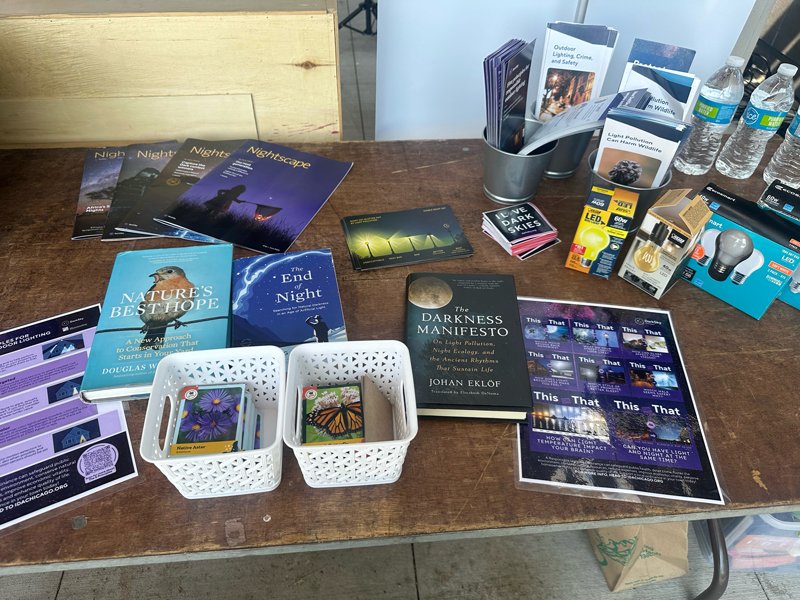Partnerships for Pollinators
On June 19th, the Brookfield Zoo and Sag Moraine Native Plant Community co-sponsored "Partnerships for Pollinators” event at the Zoo. Among the presenters were Sag Moraine Native Plant Community, Cook County Farm Bureau, Brookfield Zoo Library, Riverside Library, Cook County Forest Preserve, Illinois Monarch Project, Chicago Bird Collision Monitors, Hawthorn Woods Parks and Recreation and DarkSky Chicago.
The event was held to bring attention to a very dire trend: since the 1950’s the pollinator population has seen a dramatic decline. This decline has been driven by
loss of habitat
growth in use of general pesticides
the continual and rapid growth of Artificial Light At Night
Why is this so dire? Well, pollinators are a major food source in our food chain. Pollinators are responsible for one out of every three bites of food that people eat. Pollinators, specifically caterpillars, are the primary food source for fledgling birds as they are easiest to digest and provide the best nutrition. These birds, in turn, eat insects, caterpillars , rodents, and other small animals which keep their populations in check and maintain a balance in the ecosystem. Lastly, is the negative impact of artificial light at night. Artificial lights have always been damaging to night time pollinators but LED’s have been much more destructive because they are “whiter”, they are “brighter” and inexpensive to run. The pollinators are drawn to them. They will fly around the light ignoring their need to eat, pollinate and breed. They tire and die without performing their basic functions.
Thankfully, action plans to reverse these trends are simple and each of us can do our part.
First, we can help increase the pollinators habitat by planting a native plant garden. The native plant is an important choice because our they provide the best food for our local pollinators. The native plants also help prevent soil erosion and improve the soils’ ability to absorb water. They also do not need watering once they’ve been established, making them incredibly low-maintenance.
Second, we are all asked to stop the use of general pesticides. We use pesticides to kill specific pests, but the general pesticide kills everything in the soil. If we stop the use of these general pesticides, the bio-system will rebalance and do a better job of controlling “pests,” on top of providing a favorable environment for pollinators to thrive.
Finally, we can follow the 5 Principles for Responsible Outdoor Lighting that Dark Sky promotes.
Use Light only if it is useful- all lights should have a clear purpose
Targeted- direct light so it only falls where it is needed
Low level- Light should be no brighter than necessary. A dim light will attract less pollinators than a bright one.
Controlled- use light only when it is needed. Turn off the lights when you go to bed. Give the pollinators time to do their job!
Only use warm colored light- avoid short wave length (blue) and find bulbs with (amber) as these colors attract less pollinators.
The event was a success and all participants came away with something simple they could do at home.






